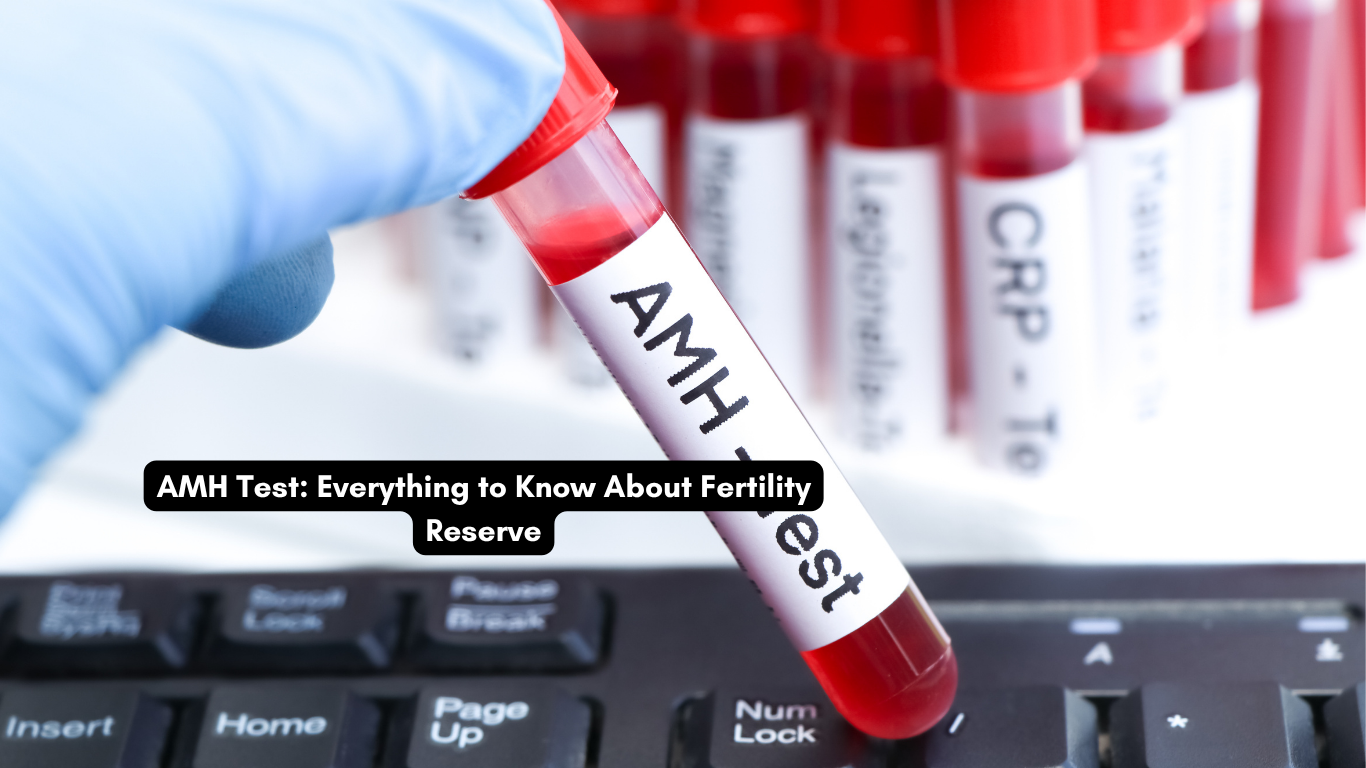
Bringing new life into the world is one of the most beautiful journeys, but sometimes, even after all the right steps in IVF, implantation doesn’t happen. You may be left wondering — why did the blastocyst not implant?
Let’s explore this in simple terms so you can understand the science behind implantation, why it sometimes fails, and what can be done to improve your chances — with insights from leading IVF Specialist Doctors in New Delhi.
Beginning with Blastocyst and Implantation
You may think of blastocyst implantation as the time when the “seed” settles into the “soil” and starts to grow. During IVF, embryos are cultivated in the lab to the blastocyst stage — typically around five or six days after fertilization.
For a pregnancy to be established, the blastocyst must attach to the uterine lining and subsequently embed into the uterine lining. While this process is often intricate and delicate, it occasionally happens, even with the most promising blastocysts, that implantation fails to occur.
Understanding What a Blastocyst is
A blastocyst is a ball of roughly 100 to 150 cells, hollow and tiny, that forms about five days post fertilization. There are two important parts:
- Inner cell mass (ICM): This mass will become the baby.
- Trophoblast cells: These will eventually develop into the placenta and nourishes the baby in pregnancy.
In a similar manner to a seed that needs to sprout and anchor into the soil, the blastocyst must “hatch” out of its outer casing (zona pellucida) and then attach to the uterine wall.
The Role of Implantation in IVF Success
Implantation is one the most important stages in IVF. The success of implantation will always determine the occurrence of pregnancy, even when fertilization and embryo development carry out seamlessly.
Implantation success hinges on two factors:
Quality of the Embryo (the seed)
Quality of the Uterine Environment (the soil)
When these two are in sync, the prospects of implantation leading to pregnancy are significantly heightened. However, if one is considerably imbalanced, pregnancy is unlikely.
Common Reasons Why Implantation of Blastocysts is Missed
Unfortunately, there are numerous biological and environmental factors that explain why even an immaculate blastocyst still fails to implant. The factors are as follows:
Poor Embryo Quality
This is the most prevalent cause linked to the implantation of blastocysts. An embryo may be of an acceptable quality visually, but still may contain problematic issues, such as:
Abnormalities in mitotic divisions
Weakness (low energy reserves)
Genetic anomalies
These will all greatly inhibit the blastocyst from developing to maturity post-transfer.
Ways to Improve:
To find out which embryos are genetically viable, most IVF specialists will advise patients to use Preimplantation Genetic Testing (PGT) as the first step.
Problems of the Uterine Lining
Foremost, the uterine lining (endometrium) must be soft, thick, and in a receptive state to allow implantation. If the lining is thin, scarred, inflamed, or contain debris, simply put, the blastocyst will not be able to fasten in any significant way.
Possible Explanations:
Prior surgical procedures and infections
Endometriosis
Fibroids or polyps
Ways to Improve:
An IVF Specialist Doctor in New Delhi may recommend a combination of medical treatments for the lining of the uterus.
Chromosomal Abnormalities
Chromosomal abnormalities can lead to the implantation of embryo, even those that appear to be healthy.
Incorrect chromosome division hinders embryo growth, a problem that becomes more prevalent with age, especially after 35.
Solution:
Implantation success rates improve with PGT-A (Preimplantation Genetic Testing for Aneuploidy) because it helps to identify chromosomally normal embryos.
Hormonal Imbalances
Your hormones set the proper “environment” for implantation. When they are ‘out of whack’, even a perfect blastocyst might be unable to ‘stick’.
Common problems can be:
Low Progesterone (necessary to prepare the uterus)
High Estrogen
Thyroid Dysregulation
For the treatment,
Your physician might suggest adjusting your IVF plan, hormone replacement, or thyroid medications to achieve a more balanced state.
Immune System Issues
The immune system is sometimes the cause of implantation failure. It can become overactive, viewing the embryo as a foreign invader, thus preventing blastocyst implantation.
Some tests and treatments include:
Natural Killer (NK) Cell Testing
Immunotherapy or Steroids to soften the immune response
This might be a controversial topic, however, many IVF experts within New Delhi approach recurrent implantation failure with the assumption that immune support is appropriate.
Lifestyle Factors That Affect Implantation
Your habits significantly influence your implantation and overall fertility.Smoking, drinking too much, having an unhealthy diet, and poor sleeping patterns are some unhealthy lifestyle selections, that can greatly decrease one`s chances to be successful.
For better lifestyle choices, one could try to eat a well balanced and antioxidant containing diet, and maintain an appropriate weight. One should also try moderate exercises, and try to avoid stress as much as possible. Your body should be viewed as a garden. Only with appropriate tending and nourishing can a garden flourish.
Age and Its Impact on Implantation
Regarding age, degrading quality of eggs, and, and later, implanting those eggs. For those women that are 35 and older, and are attempting to get pregnant, more of their eggs will be chromosomal abnormal, which will bring an increase failure of implanting those eggs.
Age for men also has an influence. Sperm quality will also decline, which will, in turn, also decline the health of the embryo.
Solutions for these age-related problems could be egg or sperm freezing encapsulated at a younger age, and for older women, they could use donor eggs. One could also use more advanced laboratory grooming techniques to choose the finest embryos.
Role of the IVF Laboratory
Conditions in the laboratory can also play a role in the success of the procedure, even if there are perfect embryos, and a willing uterus.
The laboratory must maintain the temperature, pH, and air quality in a way that they imitate the body’s natural environment.
A skilled IVF Specialist Doctor in New Delhi collaborates and receives instruction from highly specializes embryologists and well-maintained labs that precisely and under these specified conditions, which tautologically increases success chances of implanting.
How an IVF Specialist Doctor in New Delhi Can Help
Finding the right IVF expert can make a difference. IVF specialists have the skills to combine the science of medicine with the technology of medicine and the art of understanding a patient's emotion in order to tailor treatment to the patient's needs.
They can help by:
Identifying investigations and possible treatment options for implantation failure.
Suggesting genetic and uterine investigations.
Personalizing stimulation and customized transfer routines.
Providing emotional support during the journey.
New Delhi also has some of the best IVF centers with modern technology like laser-assisted hatching and time-lapse monitoring to best select which embryos to transfer.
Assessing and Performing Tests and Other Treatment Options
A wide array of treatment options within the field of medicine for the improvement of implantation remain within the reach of every doctor which include:
Endometrial Receptivity Analysis (ERA): Identifies the ideal time for the transfer of an embryo.
Week Hysteroscopy: Visualization of the uterine cavity and identifying the problematic areas of the uterus.
Laparoscopy: assists in identifying Endometriosis and Fibron.
PRP assisted therapy: helps in increasing the uterine lining.
Counseling and designed nutrition programs.
Hope can be restored with these treatment options by identifying the root cause of implantation failure.
Emotional Support
Getting emotional support is essential in order to challenge implantation failure. Frustration and hopelessness are normal emotions during this time which contribute to the feeling of being alone.
Your burden can lighten if you engage with a fertility counselor, participate in support groups, or discuss your journey with close friends and family.
After targeted personalized care, numerous couples in New Delhi have shifted from having failed pregnancies to positive outcomes with an IVF Specialist Doctor.
Concluding Remarks
The failure of implantation isn't the conclusion of one’s fertility journey. It signifies that a specific area requires your attention. The use of IVF, genetic testing, and advanced personalized care bring success within reach.
An experienced IVF Specialist Doctor in New Delhi will help you identify the challenges you face. With your commitment and their dedication, you can overcome blastocyst implantation challenges and work with your IVF Specialist to realize your dream.
The journey to parenthood, like all plant growth, takes the proper time, attention, and right, nurturing elements.
FAQs
1. What is the most common reason for blastocyst implantation failure?
The most common reason is the quality of the embryo and its genetics. If the embryo is able to be transferred but is developing poorly, there is an issue with the genetic material.
2. Can the uterine lining affect blastocyst implantation?
Yes, an unhealthy or thin uterine lining makes it difficult for the embryo to attach and grow, thus reducing the chances of implantation success.
3. What can I do to enhance the chances of implantation after IVF?
You can do this by living healthily, following your physician, requesting for the ERA or PGT tests, and stress management.
4. Does age impact implantation of blastocysts?
Definitely. The older one gets, the poorer the eggs and the more the challenges to implantation of the blastocysts.
5. How can an IVF specialist available in New Delhi assist me?
A specialist will determine the reason for the failed implantation of the embryo and expand the failed implantation cycle. He or She will customize your treatment procedures. He or She will also apply the advanced technologically aided IVF procedures to increase your success.









Write a comment ...